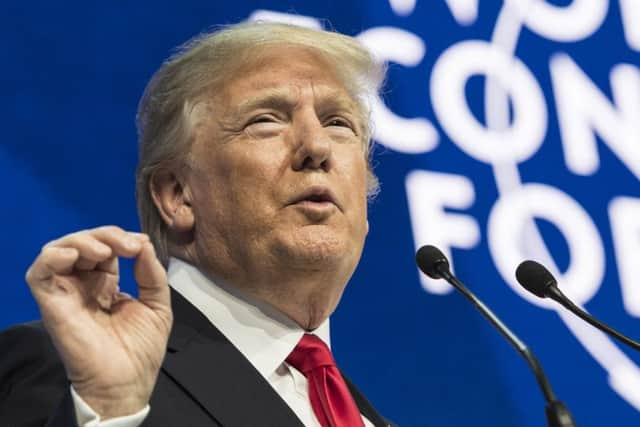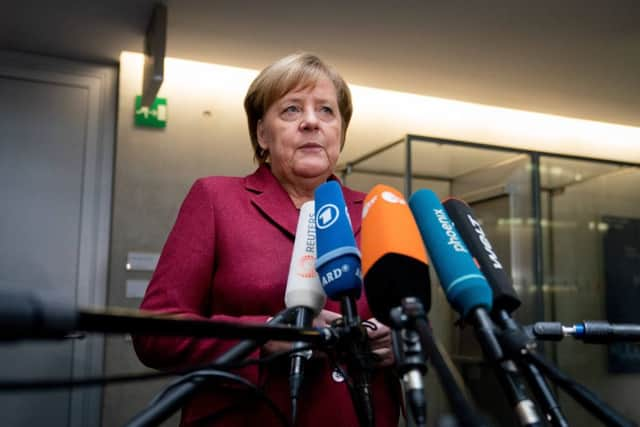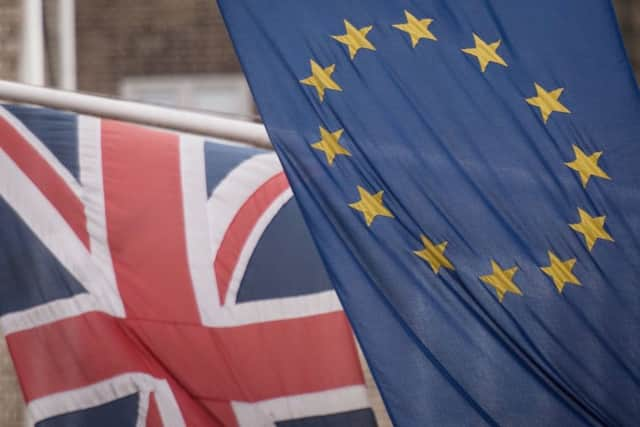Mark Casci: Let’s not let Brexit distract from wider economic peril
The World Economic Forum Annual Meeting will hear from the leaders of the German, Brazilian, Japanese and South African governments and inevitably they will be focusing on their respective nation’s fate in a climate in which economic confidence appears shaken.
The contrast from last year could not be more stark.
Professional services firm PwC’s 22nd annual survey of 1,300 plus CEOs around the world shows a worrying picture, with nearly one in three business leaders believing that global economic growth will decline in the next 12 months.


Advertisement
Hide AdAdvertisement
Hide AdYou might take the optimists’ view that two out of three foresee no contraction in the economy but let us be clear, the one in three is approximately six times the level of five per cent last year – a record jump in pessimism.
Overall, CEOs’ views on global economic growth are more polarised this year but trending downward.
Company bosses in North America are the most concerned but China, Germany and Russia all showed far higher than normal levels of worry about the future.
As a nation we have been permanently stuck in a solipsistic bubble of Brexit navel-gazing for approaching three years, with political and economic news dominated by the never-ending flood of analysis and opinion surrounding the dreaded salvo of the B words, Brexit and Backstop.


Advertisement
Hide AdAdvertisement
Hide AdI hear often people on both sides of the Brexit divide lamenting how we as a nation are increasingly being seen as a laughing stock.
Much of this justified. The woeful lack of leadership on how to plot out future trading relationship with the EU is a plague on the houses of our two main political parties and it is clearer today than ever that neither the Conservatives or Labour Party has a coherent message on how, following the 2016 referendum, we can implement a plan which does not harm our economy and make the UK stronger as a result of leaving the EU.
However, the farcical scenes at home should not distract from the concerning picture abroad.
Independent of Brexit, the main power structures of the EU itself are in trouble. Outgoing German chancellor Angela Merkel is set to leave office as Europe’s biggest economy shows increasing signs of being set to enter recession.


Advertisement
Hide AdAdvertisement
Hide AdFrance is engulfed in civil protests from those angered at Emmanuel Macron’s reform programme while populists movements in Italy have an increasing stranglehold on the nation’s Government.
This makes a for a series of rather unlikely bedfellows at the heart of Europe’s leadership table.
The rising tide of populism is being felt the world over with trade tensions and protectionism far from a British condition.
Driven by, but not confined to Donald Trump’s trade war with China, more and more global bosses are putting the brakes on investment in the face of declining forecasts for 2019.


However we should make no mistake.
Advertisement
Hide AdAdvertisement
Hide AdThe twin negative engines facing our societies of populism and trade tensions are not the causes of our problems, they are the symptoms.
Years of economic growth failed to raise living standards for many people. That is as much true of Britain as it is Brazil.
While global CEOs may be battening down the hatches and that a global retraction could be en route, I hold on to one piece of optimism.
Whether you consider Brexit to being the pathway to a land of milk and honey or a self-inflicted fatal wound from which the nation will never recover (both of which I strongly disagree with) it is clear that our future path has to be one that brings everyone along for the ride, regardless of their age, background or gender.
This approach must and will be taken, quite frankly because it is the only road left for us to take. Let us hope it will be one full of possibilities and unencumbered by unnecessary roadblocks.